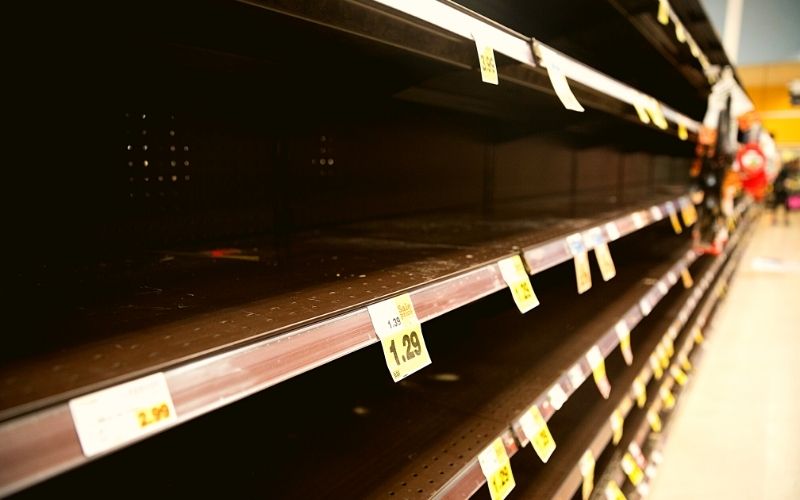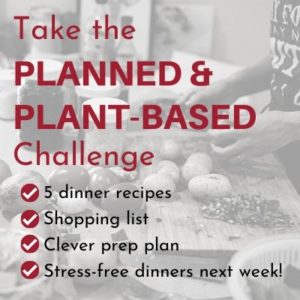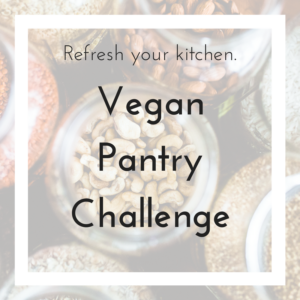Plant-based and vegan people need to start thinking about food preparedness. With climate change, extreme weather events are bound to increase in frequency and severity, and those events impact the food that is available to us. That is not a prediction, but a fact we can already observe. Food preparedness is no longer something we can put off. In this post, I will briefly address the reasons why food preparedness matters for plant-based and vegan people, and suggest that, rather than rush to create an emergency food preparedness list, we need to start with a mindset shift. In a future post I will address more specific food preparedness actions each household should take.
Why food preparedness matters
In my own province of Canada, British Columbia, at the time of writing this (early December 2021), there are still thousands of people evacuated from their homes due to flooding. The main highways connecting Vancouver to the rest of the country are damaged and in some cases will remain closed for months. Precious fertile farmland remains under a soup of floodwater contaminated by agricultural chemicals, hydrocarbons, and animal feces and carcasses. Writing this brings tears to my eyes and contemplating the consequences for my favorite local produce farmers makes me feel nauseous. It’s an awful reality, but we need to take stock of.
Many rural communities, with their road access to major food hubs cut off, are experiencing empty shelves at the grocery store. Even in the unscathed city some items are in short supply, while there are also restrictions on fuel. Similar scenarios are playing out elsewhere in North America and around the world. We can no longer act as if the consequences of climate change were something that will happen to others in some distant future that we don’t need to be personally prepared for.
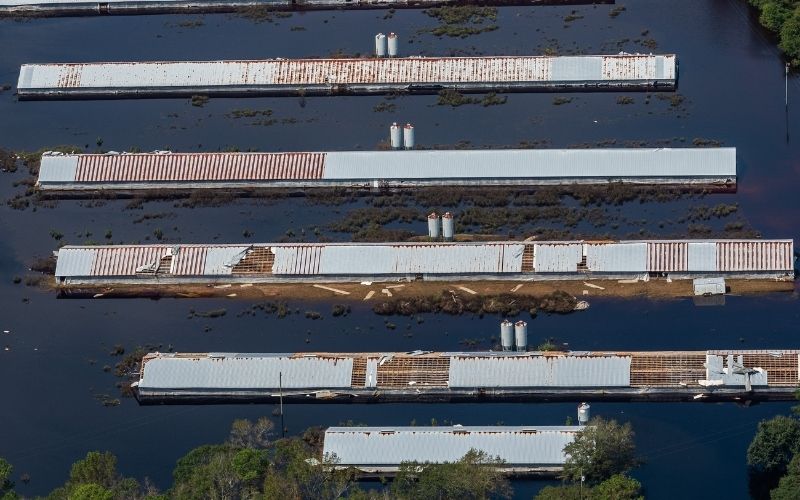
Flooding of a CAFO in North Carolina after Hurricane Florence. Photo by the amazing Jo-Anne McArthur on Unsplash
How the climate emergency enhances the need for food preparedness
At the risk of simplifying, here are three big challenges to food security that climate change brings about.
First, the risk of crop failure is increasing due to extreme weather events causing droughts, flooding, new insect invasions, wild fires, etc.
Second, farmland is particularly at risk for flooding and its toxic after effects, because more fertile land is naturally located along waterways. Past flooding drove sediments to the flat plains and enhanced soil quality. The damage from flooding may not be a concern if only cultured farmlands were located on the plains. However, we have combined industrial uses and industrial agriculture, including concentrated animal feeding operations (CAFOs), on the floodplain. When violently flowing water overpowers the capacity of human-built infrastructure meant to control it, it destroys tanks supposed to safely hold chemicals, overflows lagoons filled with feces, and drowns hundreds of thousands of animals. When the flood waters recede, the landscape is covered with a toxic soup of mixed chemicals and rotting carcasses.
Third, our food system is increasingly globalized and centralized. Everyone wants to save money at the grocery store till, and mega-corporations that can create economies of scale constantly increase their market share. Based on price alone, small producers and small grocers cannot compete against big box stores and online retail giants. As consumers, to save money on food, we have put all of our berries in a single bowl. The unintended consequence is to leave us collectively and individually vulnerable to food shocks.
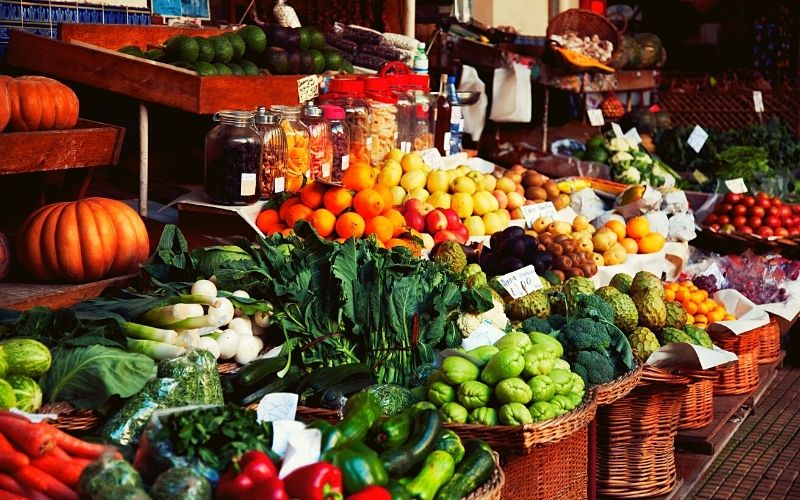
A mindset shift to increase our emergency food preparedness
It’s time for us to reconsider our priorities. As a whole, our consumption expenses like vehicles, home renovations, and travel have become far more significant than our food budget… but what do we really need most: a new electronic gizmo or fresh veggies?
I say it’s about time we invest in our collective and individual food preparedness and build up our food security, fully knowing that it’s going to cost more than what we are currently spending on groceries.
Chew on this: food currently is too cheap. Its price tag does not include externalities (its undesired consequences) such as pollution or human and animal suffering. In addition, we have become addicted to the low prices generated by the food industry’s consolidation.
We have to let go of the idea that food is only a commodity to be acquired at the lowest price, regardless of nutritional quality or local resilience.
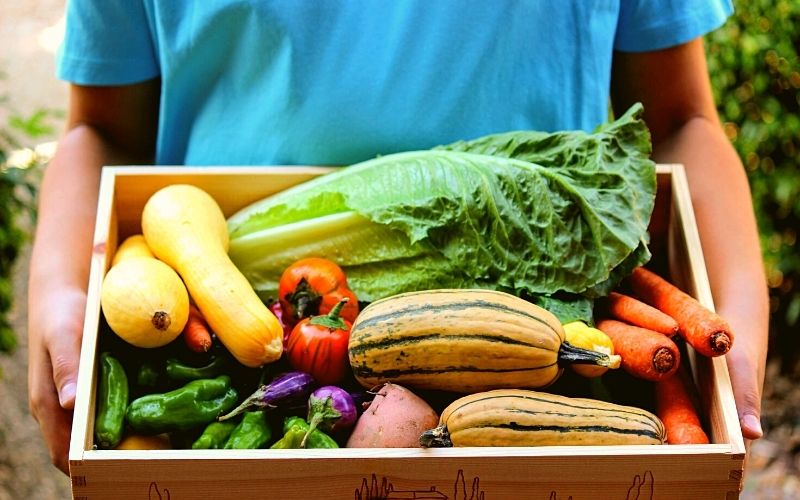
Early steps to grow our food preparedness
In an upcoming blog post, as I learn and experiment more around this topic myself, I will write about ways to increase your household’s food preparedness. In the meantime, here are some early steps to try that will benefit your family while at the same time building up local food resilience:
- Buy fruit and vegetables from small producers, whether it’s directly from the farm or at the farmers’ market.
- Participate in a Community Supported Agriculture scheme, the most common of which is the “CSA box.”
- Learn to cook with seasonal vegetables and with basic ingredients, rather than count on the availability of prepared meals (that aren’t good for you anyway). (The Vegan Meal Plans focus on seasonal produce.)
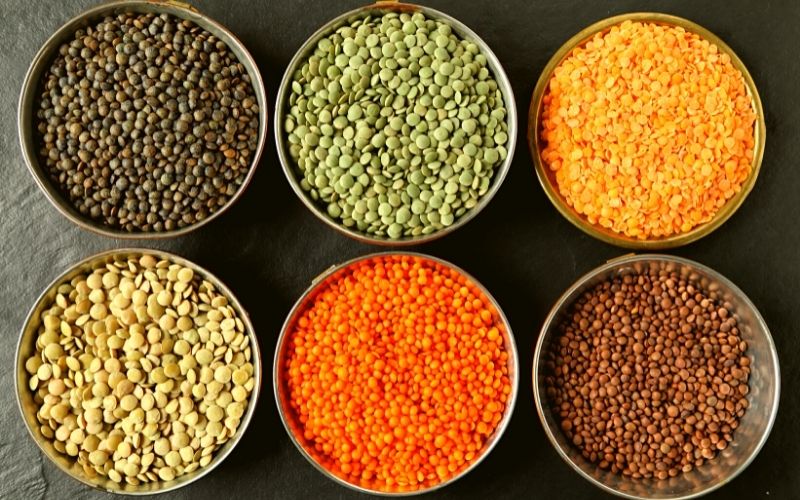
- Buy at least part of your groceries from a small local grocer that itself supports local growers, rather than only shopping at big box stores or getting everything delivered from an online giant.
- Dedicate some storage space in your home to, over time, build up an inventory of dry goods, especially whole grains and legumes. (Keep it protected from pantry moths though!) If you have cool dry storage, keeping squashes and root vegetables like potatoes, sweet potatoes, carrots, and beets is also great. That way, you’ll have something to cook with for a few weeks if your area struggles with stocking food for a while.
- Curious about gardening? Growing your own greens and sprouting seeds is a good place to start. I don’t recommend going all-out on gardening without preparation, as you may get discouraged and abandon everything after a few months. Grow your garden slowly.
- Volunteering at a local community-oriented farm and at urban food hubs will help you become more connected with your local community, and grow your food skills too.
What are YOU doing to enhance your family’s food preparedness? Share your thoughts and tips in the comments below.

